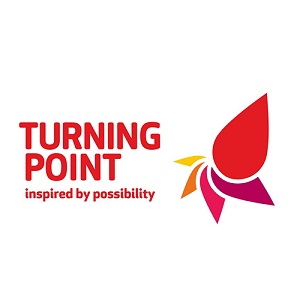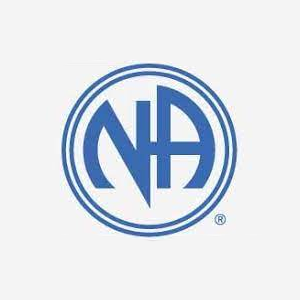Drug & Alcohol Rehab in Suffolk

How Does Rehab Work?
Rehab involves holistic strategies that are created to deal with individual addiction with support, wellness methods, and steps to restore good mental health. Clients are introduced to life-changing, supportive, and therapeutic programmes that are led by experienced and professional therapists. Along with individual therapeutic intervention, individuals can benefit from the support received from group sessions. Addictions are treated through an inpatient or an outpatient programme. For those who enter an inpatient rehab programme, the programme requires that one remain inside the centre or the facility for the duration of treatment. Outpatient services are an option for those with less severe dependencies and will meet with a counsellor weekly while attending work and staying at home.
What Happens During Residential Rehab?
Entering rehab is the first step towards sobriety. As the journey can be challenging, it can be possible to prevent relapse. You could feel apprehensive regarding the process, so let us help you by taking a good look at what to expect during rehab.
Rehabilitation from addiction starts with a professional medical evaluation. This evaluation or assessment helps the professional decide which treatment plan is most suited to your needs. Therapy differs from one person to the next depending on the history of drug or alcohol use and the presence of comorbidities (such as depression).
An assessment is followed by detox. Detox is a formal process and is performed within residential rehab or at home with guidance from a medical professional (outpatient services). During this period, individuals abstain from drugs and/or alcohol use until the substance is no longer present in the body. Because of the difficulties associated with withdrawal, a medically supervised detox from drugs and alcohol is advised.
During rehab, patients will receive therapy. Therapy can be delivered on an inpatient or outpatient programme. Therapy consists of individual counselling including Cognitive Behavioural Therapy, skill-building and group sessions.
1. Assessment

To acquire the best treatment to suit your needs, an assessment will be the first stage in the recovery approach. Assessments are performed by a medical expert and can include a telephone screening. The professional will ask questions about your wellbeing, your substance use, any history of addiction, and whether you have any comorbid mental health conditions. A phone assessment offers staff private information that will help to safely handle the detox process.
Whether you or someone you love require professional support to overcome substance addiction, it all begins with an individual assessment. Assessments are vital to the success of therapy because it determines the type of therapeutic plan based on the addiction and potential comorbidities (depression or anxiety).
2. Detox

Detox involves the cessation of drugs and alcohol from the body. With professional care, it is safely facilitated and is most commonly monitored in a private rehab because of risks associated with withdrawal.
Medical detox is often recommended because it helps medical staff to oversee withdrawal symptoms. Withdrawal from drugs/alcohol can be uncomfortable and relapse may occur if not managed within a treatment centre facility. Medically assisted detox can ease the process by supporting clients and providing medical treatment to limit withdrawal symptoms. During an individual assessment, a professional will determine which approach is best suited to a comfortable detox and entry into treatment thereafter.
3. Therapy

Therapy includes the one-on-one and group sessions you will attend with a qualified therapist, counsellor, and support staff. Treatment is provided in both a residential rehab or as part of an outpatient programme. The direction for therapy will depend upon individual needs.
Step by Step Process for Residential Rehab
To understand your medical and mental health history.
Arrange a suitable date to begin your journey to recovery.
Begin the managed withdrawal process from substances including alcohol.
To understand the root cause of addiction and how to overcome it.
Aftercare is provided to help manage the risk of relapse.
To help heal the wounds that addictive behaviour has caused others.
Find your Nearest Rehab Centre near Suffolk
The nearest rehab centre is East Coast Recovery.
Address: East Coast Recovery, Recovery Centre, 231 Whapload Rd, Lowestoft NR32 1UL
Call 0333 4444 432 to discuss your alcohol or drug rehab requirements and any other questions you may have about the process of residential rehab.
Outpatient Addiction Services in Suffolk
Inpatient or outpatient treatment for dependence can be determined by your budget requirement & life circumstances. Nevertheless, it is an individual process that requires full commitment and awareness to succeed. To help you understand these different options, we look at outpatient addiction services compared with residential treatment.
While attending an outpatient programme, you will not have to stay at a clinic to receive therapy. It is a more flexible arrangement for those who need care and therapy but cannot commit to a 24-hour inpatient programme. The purpose of outpatient programmes is to help you benefit from therapy while attending to family, work, and other lifestyle commitments.
PrivateOutpatient care includes individual counselling with a therapist. You will travel to the therapist and engage in hour-long treatment sessions. Aside from private therapy, there are also free services from charities and government-backed organisations to address drug and alcohol addictions.
NHS Free addiction services in Suffolk

Sanderson House, 17-19 Museum Street, Ipswich, Suffolk IP1 1HE
WebsiteThe Benefits of Outpatient Services
Private Outpatient programmes focus on individual support that is customised to suit the interests of those struggling with addiction. – Outpatient treatment is a more flexible service that can aid many individuals regardless of financial or family commitments. It involves the attendance of weekly sessions that are delivered by a qualified therapist. – It is a more cost-effective treatment programme compared to residential services.
The Challenges of Outpatient Services
Because one remains in the same environment and exposed to the same triggers, there may be a higher risk of relapse and failure to complete an outpatient programme. Although the NHS and other UK-based charities provide free addiction services, treatment is not tailored to the individual’s needs and waiting lists are to be expected.

How Much Does Rehab Services Cost in Suffolk?
Residential rehab can cost £1500 – £4000 per week. Understanding how much other addiction treatment services cost requires a closer look at the services below. Inpatient rehab is the more expensive of the two; however, there are alternative organisations and service providers including charities offering free addiction treatment services for qualifying individuals.
The NHS and charities such as Turning Point will require a self-referral to be considered for treatment. You will also find many other affordable services (such as private counselling) or free therapies and community-supported programmes for those with drug or alcohol dependencies. These groups include AA or Alcoholics Anonymous, Narcotics Anonymous, and Cocaine Anonymous.
Support Groups in Suffolk

Basic Text Study Group
Friends Meeting House, 22a Friars Street, Sudbury, Suffolk CO10 2AA

Ipswich Bentley Share Online
Bentley Village Hall, Capel Rd IP9 2DW

Ipswich Step
Museum St. Methodist Church, Black Horse Lane entrance IP1 2EF
The Pros and Cons of Seeking Treatment in Your Local Area
Pros
1. You are familiar with the area which may provide a layer of comfort/safety.
2. Family or friends can easily travel to visit or are close by.
3. You could save on the costs of travelling long distances for treatment, or free addiction services may only be offered in your area of residency.
Cons
1. A local environment means access to drug dealers or other triggers. This is more of an issue if you choose outpatient programmes.
2. Failing to consider locations outside your local area could mean a missed opportunities for more valuable and rewarding programmes.
3. Addiction treatment services that are close by do not always offer the best standard of rehab.
The CQC website will provide information and ratings on a service in the event you are unsure regarding a particular service.
